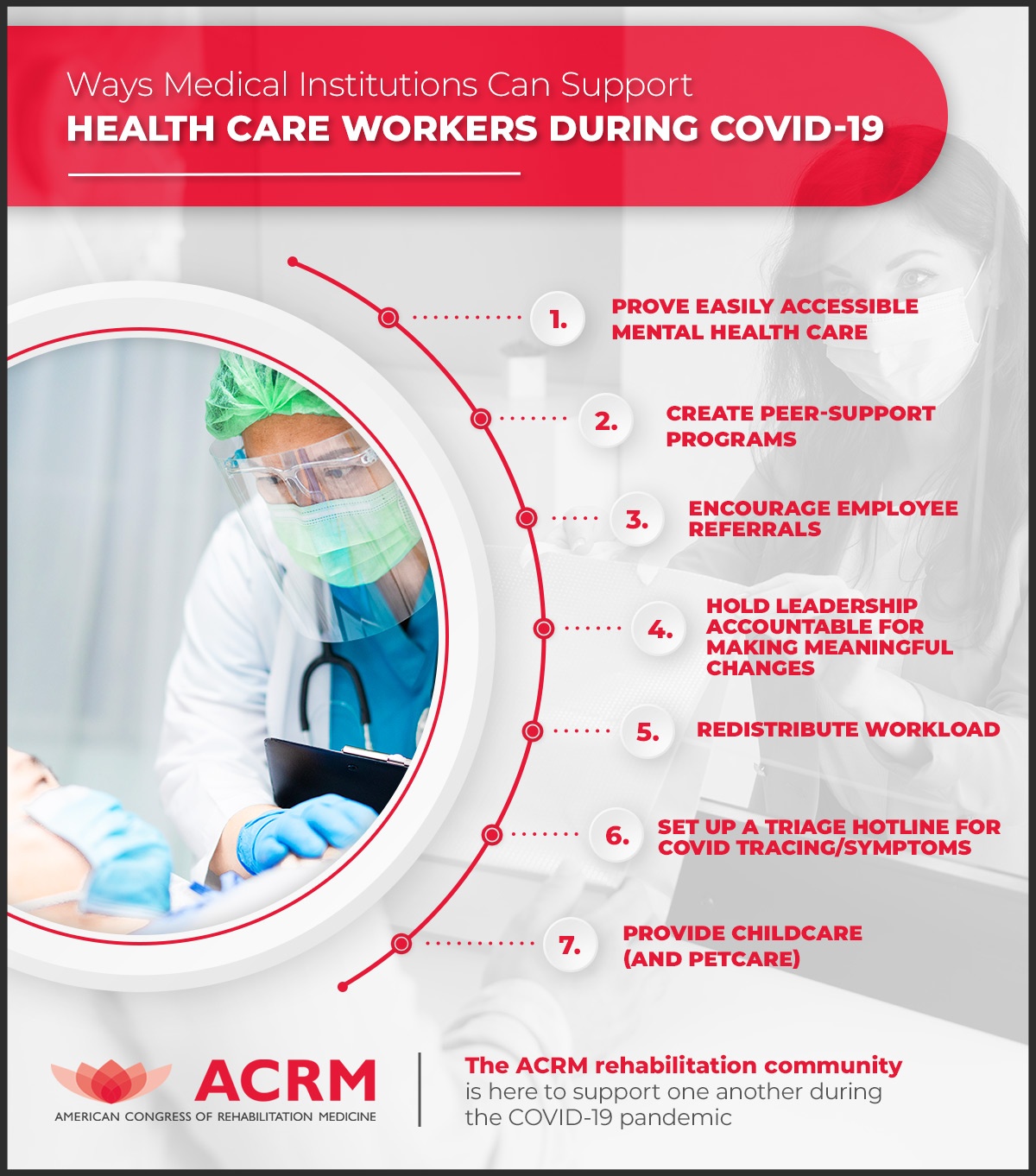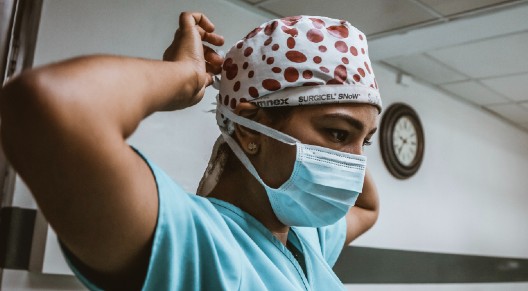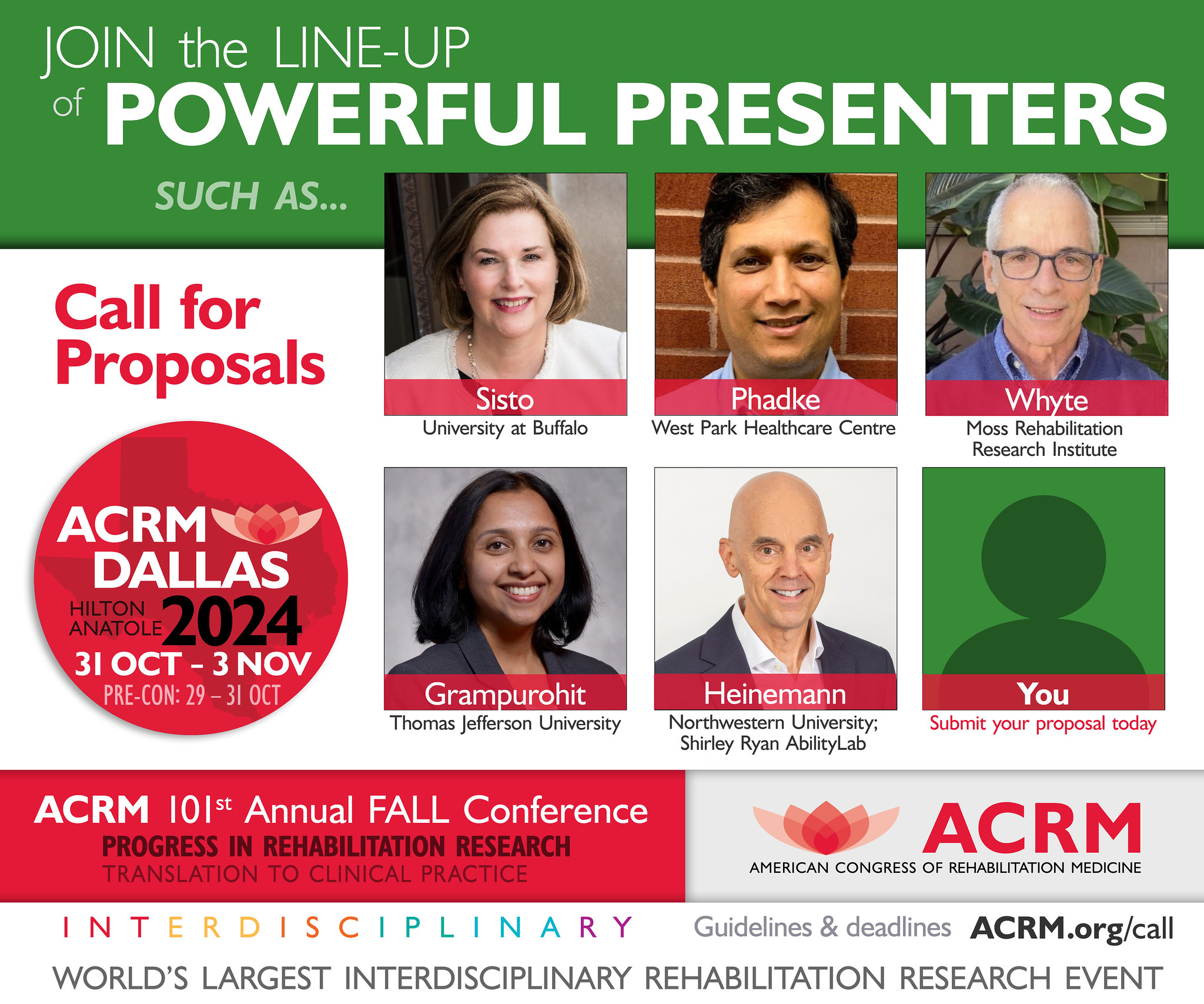Throughout the COVID-19 pandemic, physicians have faced large emotional stressors, including grief, fear of contracting the virus, and anger over the failures of our healthcare system. As the pandemic continues, it’s important for physicians to be supported, both through personal care and institutional support. In today’s blog post, we outline a few things that medical institutions can do to support their rehabilitation medicine employees during the pandemic.

Provide Easily Accessible Mental Health Care
When it comes to mental health care (and health care in general) access is key. Institutions should have easy-to-access services for physicians asking for help. While not everyone needs professional mental health services, employees should know that it is available to them and know how to access it if they need that type of care.
Prioritize Outreach
Just like accessibility is key to mental health care, institutions should be reaching out to those who may benefit from receiving help. This means providing opportunities for referral, allowing employees to support each other. Even among health care professionals, there is a stigma against mental health care. To counteract this, having peer-support programs and encouraging outreach facilitates access and destigmatizes care.
Hold Leadership Accountable
Healthcare workers deserve a safe workplace. They should be able to speak up about their concerns, not just for their physical safety, but also when their work becomes highly stressful or when they face consistent moral and ethical challenges. Unsustainable clinical volume or hours creates burnout and damages mental health. Leaders should not only be informed about these challenges but also held accountable for fixing them. Physician burnout, even when there isn’t a pandemic, needs to be a thing of the past.
Redistribute Workload
Meeting staffing needs during the pandemic has been incredibly difficult, particularly as health care professionals get sick or must quarantine. Institutions have had to learn to adjust, and many have shifted to flexible telemedicine (for physicians who are caring for children or other family members) or utilizing rotating shifts to reduce staffing in the office. Institutions should also set up a triage hotline. Right now, medical students are providing extra staffing for medical school call centers and support triaging people who have traveled or have symptoms of COVID-19.
Provide Childcare (And Pet Care)
If possible, institutions should try to take care of other stressors, such as childcare for healthcare workers. Doing so helps physicians improve their work/life balance as well as helps health care workers like those in the field of rehabilitation medicine whose children are out of school because of the pandemic find safe, affordable care.
ACRM – American Congress of Rehabilitation Medicine
The mission of our non-profit organization is to support the community of rehabilitative medicine professionals. We do so both in professional networking and our annual conference, and also through resources, such as this blog.
We work with hospitals, universities, professional, and advocacy organizations, and rehabilitation professionals around the world. We have 3,000+ members from more than 65 countries and proudly produce the ACRM Journal. Learn about the benefits of joining ACRM as well as member dues and how to apply. You can also learn more about the ACRM Conference and register either in person or online here. We also offer ways to earn continuing education credits (CME/CEUS). Learn more here.










